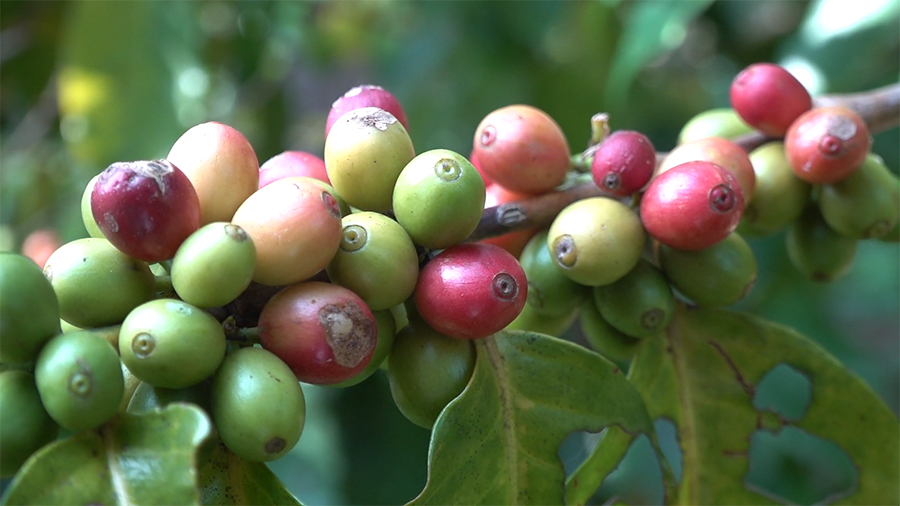
Limited knowledge of coffee production and processing has been discouraging farmers in Khempagang or Suntaley of Tading Gewog in Samtse from expanding their coffee cultivation. Despite dedicating almost a decade to growing coffee, they have not benefited. Some farmers are now abandoning coffee cultivation with a few even resorting to cutting down the plants.
 36-year-old Bhakta Raj Tamang is one of the coffee growers in Khempagang village.
36-year-old Bhakta Raj Tamang is one of the coffee growers in Khempagang village.
Initially, Bhakta had about 35 coffee plants growing around his house. But today, he has only six.
Bhakta said, “we thought coffee cultivation would be like growing tea but it is not. The coffee plant bears cherries and we still don’t know how to make use of them. We have no other option than to keep the plants as they are.”
He said that unlike many other plants, coffee does not require much care and can grow almost anywhere.
The plants can be seen bearing a lot of fruits, however, once ripe and ready to harvest, Bhakta has no idea what should be done to process the cherries and turn them into coffee beans.
“Since we do not have any idea about its production and process, the plants have been lying idle here for quite some time now. We also had to cut down a few of the plants,” added Bhakta Raj Tamang.
Bhakta’s mother Sonam Dolma Tamang, who introduced the coffee saplings eight years ago, also shared her concern over the declining number of coffee plants.
She said, “I had planted a few coffee plants both above and below my house. Most of the fruits were eaten by birds. If I had all my coffee plants, I would have easily collected about 6 to 7 kilogrammes of coffee cherries. But today, I think I will hardly get a kilogramme of coffee beans from my farm.”
The story is the same in the neighbouring villages like Jinpathang. Some have begun to shift away from coffee farming, opting for alternative agricultural activities.
Despite the decline in cultivation, the Mountain Café and Roastery in Paro emerges as a ray of hope. The café has been actively purchasing coffee cherries from Pemaling, Tashichhoeling, and Namgyalchhoeling Gewogs in Samtse for the past few years.
The café plans to buy coffee from the farmers in other gewogs and also plans to provide technical support.
Today a kilogram of coffee cherries fetches around Nu 60.
Passang Dorji, Samtse
Edited by Sangay Chezom










